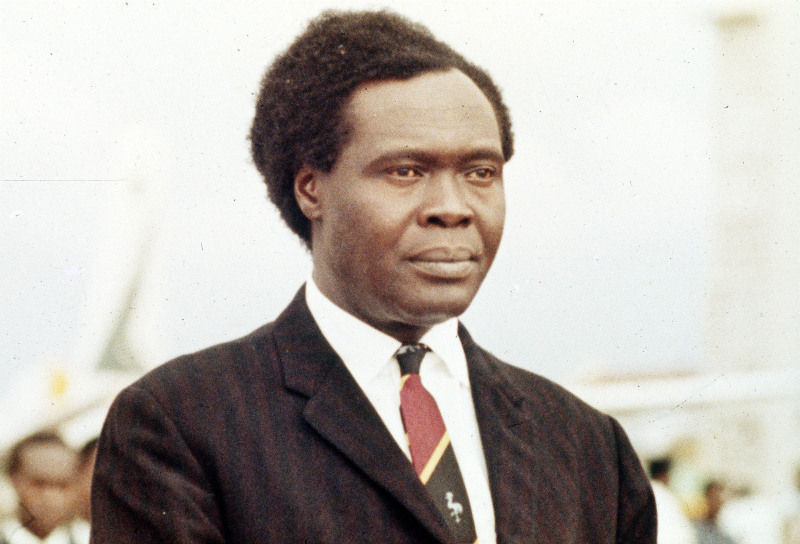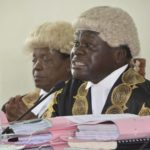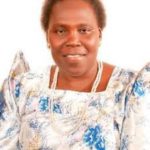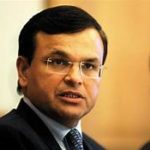
As a country, Uganda’s political life dates back to 1900 when Sir Henry Hamilton (Harry) Johnston signed the Buganda Agreement in 1900. Since then Uganda, which was christened the ‘Pearl of Africa’ by former British Prime Minister Sir Winston Churchill, has had several political figures who have in one way or the other played a role in shaping the destiny of one of the world’s most tumultuous countries.
In four-narration series the Eagleonline brings you ‘Voices that are gone or are totally silent if still alive’, beginning with the 1960s.
Edward Muteesa II
Edward Frederick William David Walugembe Mutebi Luwangula Mutesa was born on 19 November 1924, the fifth son of Kabaka Daudi Chwa. He studied at Kings College Budo and ascended the throne in 1939, when he was 15. In 1953, Mutesa was deposed and exiled in the United Kingdom, where he stayed until 1955.
Mutesa was to become the first President
of Independent Uganda in 1962, with Apollo Milton Obote as his Prime Minister. The two were later to fall out in what is today called the Mengo Crisis of 1966. Later Obote abrogated the Constitution in 1967 and abolished monarchies in Uganda.
He died in exile in 1969 and President Iddi Amin ordered for the return of his remains. Kabaka Mutesa is survived by several children among them the current Kabaka Ronald Muwenda Mutebi and Prince David Wassajja.
Dr. Apollo Milton Obote
The son of a tribal chief of the Lango ethnic group, Milton Obote was born in Akokoro village in Apac District in 1925.
He went to Busoga College Mwiri, where he was admonished and sent home for wearing brown shoes yet native students were supposed to wear black shoes.
Stubborn and rebellious to the hilt, Obote was expelled from Makerere University College. After the suspension, Obote was to return with a pair of Lugabire (sandals made out of old tyres), claiming his father had ‘used all his money to buy the pair of brown shoes’ he had earlier brought to school.
He was ‘pardoned’ and completed secondary school at Mwiri, after which he joined Makerere University College, where he also led a strike (over ‘bad’ food) that brought his educational journey to an end.
He then settled full time for politics, becoming Executive Prime Minister in 1962. In 1963 Uganda became a Republic and in 1966 Obote attacked the Lubiri, the seat of Buganda Kingdom, forcing Kabaka Mutesa II to flee to exile in the UK. He later abolished the kingdoms and in 1967 he abrogated the Constitution.
In 1969, there was an attempt on Obote’s life and a state of emergency was declared in the country. Then, in January 1971, Obote was overthrown by the army while he was in Singapore to attend the Commonwealth Conference, and Amin became President.
The only man to rule for two mandates at different times, Obote made a comeback in 1980 and ‘won’ elections under the banner of the Uganda People’s Congress (UPC). However, his second stint as president was marred by accusations of military brutality, after current president Yoweri Museveni and other militants like Andrew Kayira of Uganda Freedom Movement (UFM), Fred Nkwanga of the Freedom and Democratic Movement of Uganda (FEDEMU) Gen Moses Ali of Uganda National Rescue Front (UNRF) ‘went to the bush’ to fight his government. But it wasn’t the militants who overthrew his second regime; rebellious soldiers of the Uganda National Liberation Army (UNLA) led by then Brigadier Bazilio Olara Okello ousted the UPC government on July 27, 1985. Subsequently, Obote fled to exile in Zambia and later died in a South African hospital in October 2005, aged 79.
Obote is survived by a widow, Miria Kalule Obote (sister to former minister Lawrence Kalule Settala) and five children including current UPC President Jimmy Akena.
Grace Ibingira
Born on May 23, 1932 in Ibanda, Ankole, Grace Ibingira studied at Mbarara High School [1942-1950], King’s College Budo, [1951-1953],University of Wales [1955 – 1958] and the University of London. He was a member the Legislative Council in 1960 and was re-elected MP for Ankole West in 1962.
A founding member of the Uganda Peoples Congress (UPC) Ibingira designed Uganda’s national flag.
He was the Minister of Justice [1962-1966], Minister of State in the Prime Minister’s Office in charge of Public Service [1964-1966] and Secretary-General of UPC [1964-1966]. A one-time close political ally of Prime Minister/President Dr Apollo Milton Obote, Ibingira fell out with his boss and was imprisoned in 1966 together with among other ministers Balaki Kirya, Dr Emmanuel B Lumu and Mathias Ngobi.
When Obote was overthrown by Amin, Ibingira was named the Permanent Representative to the UN, where he served from August 1971 to 1974. He was a key political player in Uganda politics in the 1960s and was a close ally to Milton Obote. He died in the late 80s.
Al Hajji Ali Akbar Adoko Nekyon
A cousin to former President Apollo Milton Obote, Ali Akbar Adoko Nekyon was born in 1931. He has witnessed a number governments come and go. A lawyer, Adoko Nekyon Member of Parliament for Lango South East, and also served in Milton Obote’s post-Independence cabinet as Minister Information and Broadcasting between 1962 and 1967.
During Amin’s time Nekyon fled to the United Kingdom, where he practiced law.
In the 1980s he briefly returned to the country but was to go back in exile in the UK where he died of cancer in.
Brigadier Shaban Opolot
Born in Namausi Nakaloke, Shaban Opolot joined the army in 1945 under the Kings African Rifles (KAR), rising through the ranks to become the first army commander of the Uganda Army, appointed to the post in 1964.
He fell out with Obote over the differences the latter had with Kabaka Edward Mutesa, and in October 1966 Opolot was dismissed from the army and detained under the emergency regulations.
Joshua Luyimbazi Zake
The Masaka Central Member of Parliament in the Legislative Assembly, Joshua Luyimbazi Zake was the first Minister of Education in 1962.
Dr. Emmanuel Lumu
A Member of Parliament for Kyadondo North, Dr Emmanuel Lumu served as Minister for Health in the first post-independence government.
Lawrence Kalule Settala
Kalule Settala was the Member of Parliament representing Mengo South East and was appointed Minister for Works and Labour in the first post-Independence cabinet. A brother-in-law to Dr Obote, Kalule Settala at one time also worked as Minister of Finance and as Minister for Local Government.
John W Lwamafa
Born in Kigezi John Lwamafa was a Minister in the first post-Independence government.
Cuthbert Obwangor.
He was Member of Parliament for Teso East and Minister for Regional Administration in the first post-Independence government.
Mathias M. Ngobi
The first minister of Agriculture and Cooperatives, Mathiuas Ngobi was also the Member of Parliament for Busoga South. He later fell out with Obote and was imprisoned in Luzira from 1966 t0 1971 when Amin took power.
Wilberforce Wilberforce Nadiope
Sir William Wilberforce Nadiope was Kyabazinga of Busoga at the time of independence and the first Vice President of Uganda (1963-1966). His grandson is the current Kyabazinga William Wilberforce Kadhumbula Gabula Nadiope IV.
Basil Bataringaya
His political journey started when he served as the Guild President of Makerere Univerity College from 1955 to 1956. He was Democratic Party Member of Parliament for Ankole District. But after falling out with then DP boss Benedicto Kiwanuka, Bataringaya switched sides and Obote appointed him to serve as the Minister Local Government in the first post-Independence cabinet. After the overthrow of Obote in 1971 Bataringaya retreated to his village in Igara County, Bushenyi district. At the age of 42. he met his death at the hands of Amin’s soldiers on September 18, 1972.
AL Hajji Abubaker Kakyama Mayanja
‘A man of all seasons’ is the phrase that best describes Abu Mayanja. While still a student at Makerere University College, Mayanja became the first Secretary General of Uganda National Congress, a political organization formed by Ignatius Kangave Musazi. Because of his political activities, Mayanja was expelled from Makerere in 1952. At the behest of Kabaka Mutesa II, Mayanja later joined Cambridge University where he read History.
The first Ugandan Muslim to get a degree, Mayanja later enrolled for a law course from 1955 to 1957 at the Honourable Society of Lincoln’s Inn.
He later went to the United States of America on a Leadership grant and returned to Uganda in February 1960.
In 1961 Mayanja was appointed a Minister of Education in the Buganda government and also participated in the Lancaster House Conference in London prior to Uganda’s independence from Britain on October 9, 1962. Abu Mayanja is the only known politician who served in all post-Independence governments. He died in November 2005 aged 76.
Ben Kiwanuka
He was elected President General of the Democratic Party in 1958, and organized the party to win majority votes in 1961 legislative elections, making him the first Chief Minister in the Uganda.
However, in March 1962 DP lost elections to an alliance of Obote’s UPC and Buganda’s Kabaka Yekka.
Benedicto Kiwanuka was imprisoned by Obote’s government in 1969, but was one of 55 political detainees released by Amin immediately after the 1971 coup. Later Amin appointed him as the first Ugandan Chief Justice in June 1971. The two fell out and Kiwanuka was killed in 1972, after soldiers dragged him out of his chambers at the High Court in Kampala.
Boniface Byanyima
Mzee Boniface Byanyima hails from the western district of Mbarara and unitl a few years ago was the National Chairman of the Democratic Party. He is father in law to Forum for Democratic Change former president Dr Warren Kiiza Besigye Kifefe, husband to fiery politician and international civil servant Winnie Karagwa Byanyima. Said to be in his 90s, Mzee Byanyima stays at his country home in Ruti, Mbarara.
Daudi Ochieng
Born in 1925, Daudi Ochieng belonged to the Acholi ethnic group. His father Rwot Lacito sent him to King’s College Budo, and later on attained a Bachelors degree in Agriculture from Aberyswyth University. He was a close friend to Kabaka Mutesa II and one of the architects of the alliance between Kabaka Yekka and the UPC, the alliance that formed the first government after independence in 1962. As MP, Ochieng pinned both Obote and then Army Commander Idi Amin for stealing minerals from the Congo, something that put him at loggerheads with Obote and Amin. He died in June 1966 at the age of 41.
Felix Kenyi Onama
He was appointed as Minister of Works and Labour in the first post-independence government. He also served as Minister of Defense in the Obote I government.
John K Babiiha,
He hailed from from the Western District of Kabarole and was specially elected Member of Parliament. He was Minister for Animal Industry and Fisheries and later served as Vice president in the Obote I government from 1967 to 1971 when Amin captured power. He died in 1982 and was buried at his home in Kibimba village in Fort Portal.
Alex Ojera
He was Minister for Infromation and Broadcasting during the Obote I government, and was killed by Amin’s soldiers in 1972.
Balaki Kebba Kirya
Kirya was born in 1924 in Petete in Bukedi currently Palisa district. He served as a soldier in the King’s African Rifles (KAR) before joining politics under the Uganda National Congress, where he was in charge of the Mbale branch. Kirya, one time an MP representing Bukedi, was also one of the architects of the UPC/Kabaka Yekka Alliance and was rewarded with the cabinet post of Minister without Portfolio immediately after Independence. Two years later Obote appointed him Minister for Water and Mineral Resources but the two were to fall out, with Kirya later being arrested and detained in Luzira prison without trial.
In 1971 he when Amin came to power, Kiirya was released but fled to exile in Kenya when Amin started killing some of Obote’s former ministers.
Unfortunate for Kirya, he was abducted from exile in 1982, and Obote again imprisoned him on allegations of involvement in rebel activities. He was charged with treason and was in prison until the Okellos captured power in July 1985
And when Museveni and his National Resistance Army (NRA) captured power in January 1986, Kirya was appointed security minister in the Office of the President in March 1986. He died in the mid 90s was buried in his home village.







